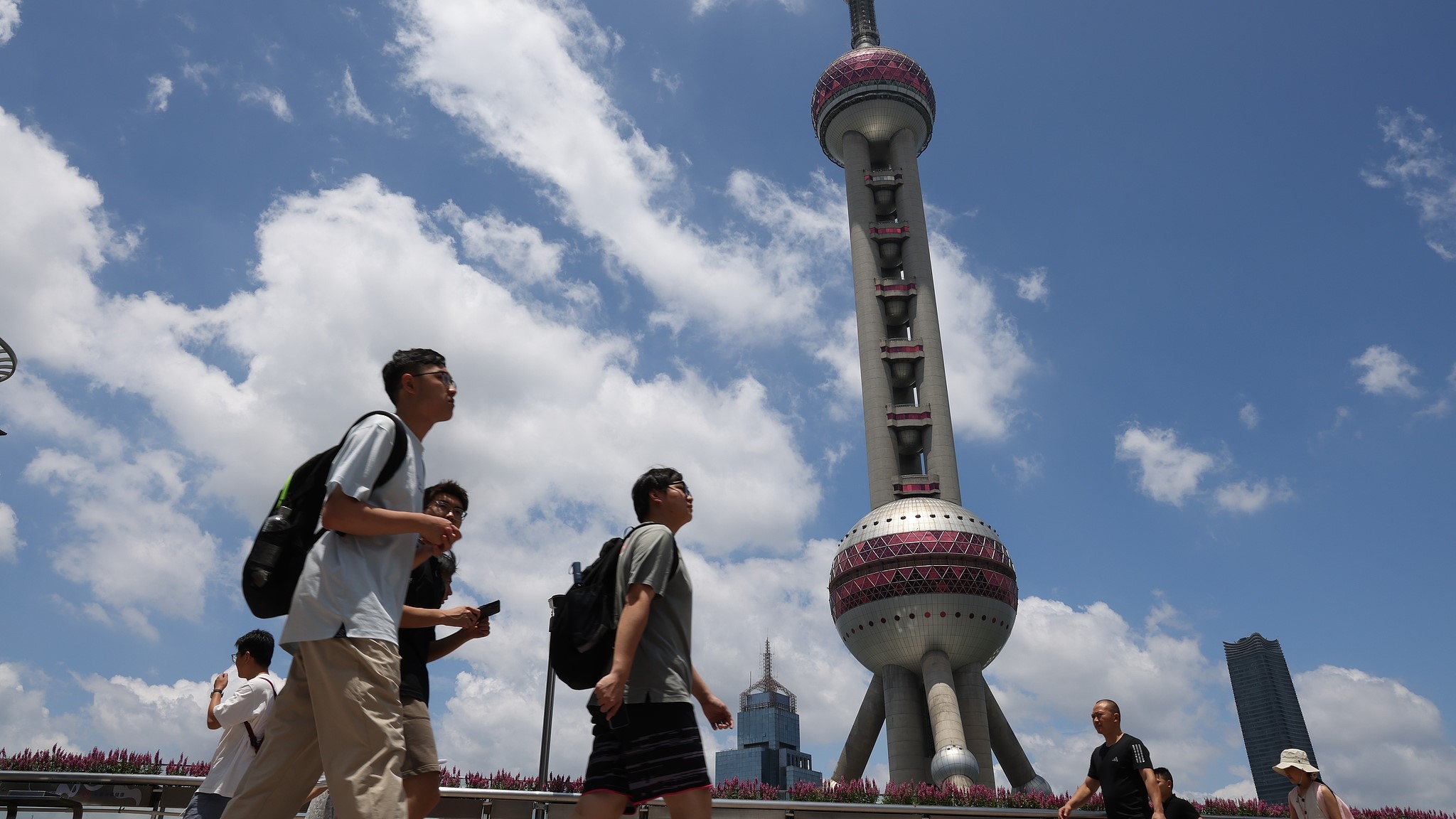
Residents walk under the Oriental Pearl Tower, Shanghai, China, July 13, 2025. /VCG
This summer, unprecedented heatwaves have swept across China, challenging the conventional understanding of the season. In response, some cities are coming up with innovative solutions.
Since the outset of July, intense heat has blanketed both northern and southern regions of China. Twenty-four weather stations in provinces including Shandong, Jiangsu, and Anhui recorded their highest-ever July temperatures. Even the typically cooler northeastern regions experienced scorching conditions.
The prolonged heat, combined with exceptionally high humidity, has led many to comment on social media that "sauna weather" has arrived earlier than usual.
The early onset of humid heat is attributed to the subtropical high-pressure system shifting northward prematurely.
Adapting to an extreme summer
Many coastal and northern Chinese cities, where air conditioning was once less common, now face a pressing need to reconsider their infrastructure. Questions arise about equipping public spaces like student dormitories and classrooms with air conditioning.
Additionally, new standards are needed for outdoor workers, such as construction workers, sanitation workers, and delivery personnel. Previously, only temperature was considered, but now humidity must also be factored in, as it hinders sweat evaporation and increases the risk of heatstroke.
In response, some cities are creating public cooling spaces. Wuhan, for example, has opened all underground subway stations to residents and tourists for shelter, maintaining temperatures around 27 degrees Celsius. Other cities like Chongqing, Nanchang, Hangzhou, and Shenzhen are following suit, utilizing subway networks, air-raid shelters, and even hotels as cool-down zones.
Preventing heatstroke for everyday citizens
To stay safe during increasingly hot summers, hydration is key – drink plenty of water and avoid sugary or alcoholic beverages. Limit sun exposure during peak hours, seek shade and wear light-colored, loose-fitting clothing made from breathable fabrics, along with a wide-brimmed hat and sunglasses. If your home lacks air conditioning, keep it cool by closing blinds during the day and opening windows at night; cool showers or baths also help.
Most importantly, listen to your body: if you feel dizzy, nauseous, or stop sweating, move to a cooler place, rest, and seek medical attention if symptoms persist. Remember to check on vulnerable neighbors and loved ones, especially the elderly, children and those with pre-existing health conditions.








 User Center
User Center My Training Class
My Training Class Feedback
Feedback












Comments
Something to say?
Login or Sign up for free